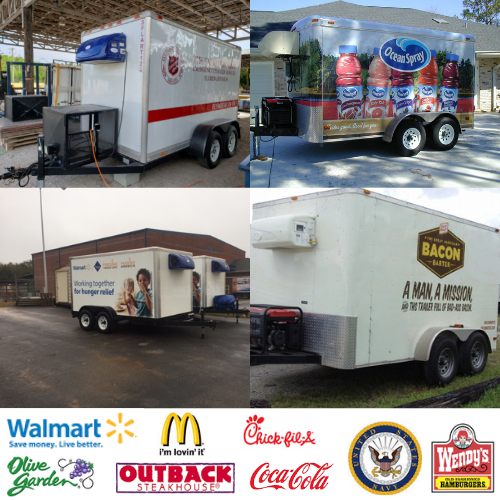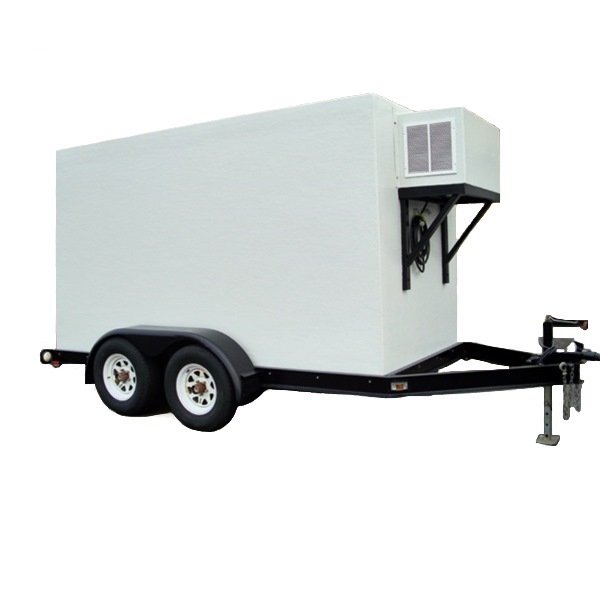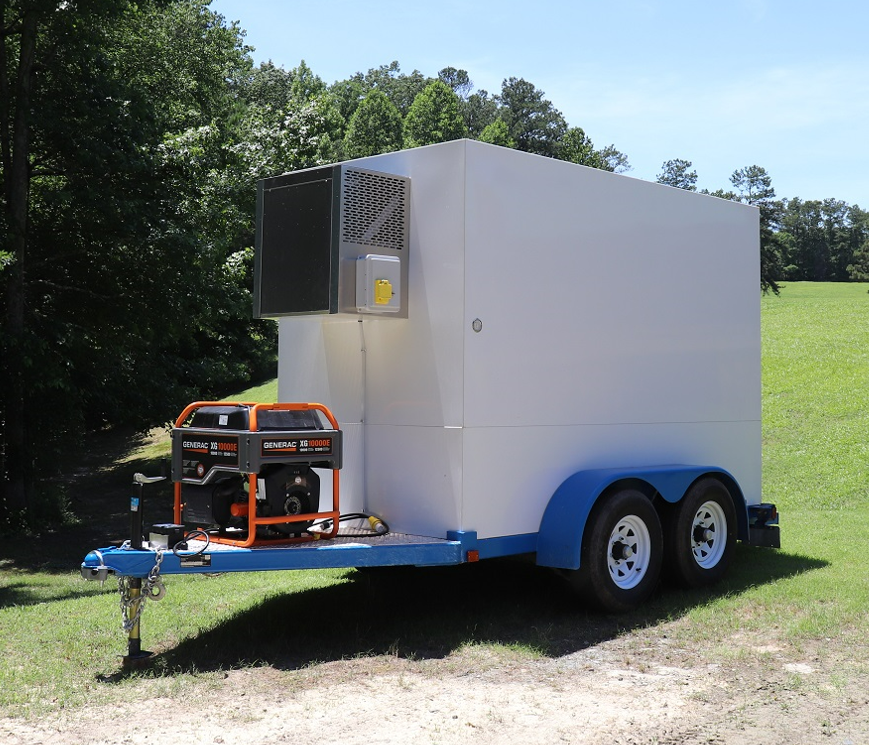The Ultimate Guide to Choosing the very best Chilled Trailers
When it comes to choosing the perfect cooled trailer for your service requirements, different variables should be meticulously thought about to ensure ideal efficiency and efficiency. From the different kinds of refrigerated trailers offered to the vital features such as size, temperature control, and power efficiency, each element plays a critical role in figuring out the ideal fit for your specific demands.
Kinds of Refrigerated Trailers

When thinking about the kinds of chilled trailers, it is important to examine their certain attributes and capacities to match the transportation needs of perishable goods. The two main sorts of chilled trailers are reefer trailers and shielded trailers. Reefer trailers, brief for chilled trailers, are outfitted with cooling down systems that proactively manage the inner temperature level to maintain subject to spoiling items at the required conditions during transport. These trailers are ideal for products like fresh produce, dairy, meat, and pharmaceuticals that need exact temperature level control - small refrigerated trailer- cooler trailers.

Size Considerations
Taking into consideration the dimensions of the cooled trailer is essential to guarantee optimum storage capacity and effective transport of perishable items. When selecting the dimension of a cooled trailer, it is important to take into account the quantity of products that need to be carried.
Another variable to think about when establishing the size of the refrigerated trailer is the dimensions of the products being delivered. Some goods may have specific size requirements or need to be stacked in a particular manner to stop damage. Picking a trailer size that fits the measurements of the products will help maintain their top quality throughout transportation.

Temperature Level Control Functions
Reliable management of temperature level control in refrigerated trailers is vital for preserving the high quality and safety and security of perishable items during transportation. When picking a refrigerated trailer, it is necessary to consider the temperature level control includes it offers.
Additionally, some cooled trailers come with multi-zone temperature level control capacities, allowing various areas to maintain varying temperature levels as required for various kinds of products. When moving a mix of perishable items with unique temperature level needs, this attribute is particularly see here now advantageous. Furthermore, trailers with effective insulation and temperature level harmony throughout the cargo area assistance protect against warm or cool spots, guaranteeing constant problems for all items being moved
Energy Effectiveness Elements
A crucial aspect to evaluate when selecting a refrigerated trailer is its power performance, which plays a significant role in reducing operational costs and environmental impact. Energy performance variables to take into consideration consist of the insulation high quality of the trailer, the type of refrigeration system utilized, and any type of additional features that contribute to reducing power usage. Top quality insulation is essential as it helps preserve the desired temperature inside the trailer with very little energy loss. Modern refrigeration systems, such as those using sophisticated innovation like electrical standby alternatives or solar energy, can also boost energy efficiency. Additionally, functions like automated defrost cycles, temperature surveillance systems, and efficient airflow layout can better optimize energy usage. By prioritizing energy-efficient cooled trailers, businesses can not only save money on operating expenses but additionally decrease their carbon footprint, making a favorable contribution to sustainability efforts in the transport industry.
Upkeep and Solution Tips
Provided the essential function of energy efficiency in minimizing operational expenses, it is critical to establish a positive maintenance and service regimen for refrigerated trailers to guarantee ideal performance and long life. Additionally, evaluating the trailer's tires, brakes, lights, and electric systems is crucial to assure trusted and risk-free procedure. Working together with a credible solution carrier for routine maintenance checks and addressing any type of problems immediately can considerably extend the lifespan of the refrigerated trailer.

Conclusion
In final thought, picking the ideal my review here refrigerated trailer involves considering various aspects such as the kind of trailer, size needs, temperature control functions, energy effectiveness, and maintenance demands. By reviewing these elements thoroughly, businesses can ensure they choose a refrigerated trailer that fulfills their certain requirements and requirements, inevitably causing much more reliable transport and storage of temperature-sensitive products.
The 2 primary kinds of cooled trailers are reefer trailers and protected trailers (small refrigerated trailer- cooler trailers). Reefer trailers, short for refrigerated trailers, are geared up with cooling down systems that proactively manage the internal temperature level to maintain perishable products at the necessary problems during transportation.On the various other hand, protected trailers are designed to preserve the temperature of the goods making use of the insulation properties of the trailer walls. While they do not have energetic air conditioning systems like reefer trailers, protected trailers are suitable for goods that require security from outside temperature level variations but do not call for as rigorous temperature level control as subject to spoiling items.Efficient monitoring of temperature control in cooled trailers is important for maintaining the high quality and safety of disposable products during transportation